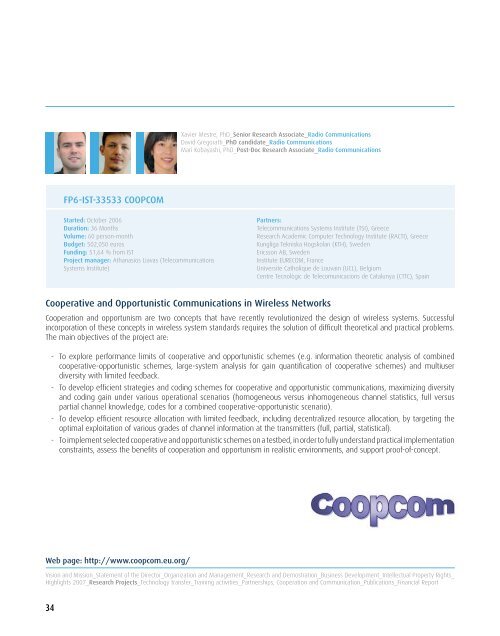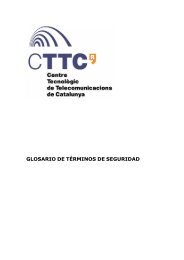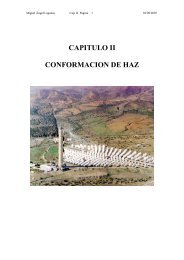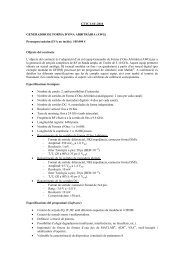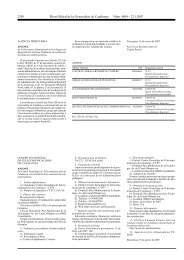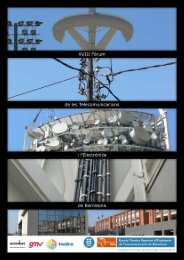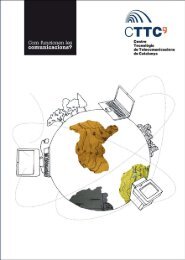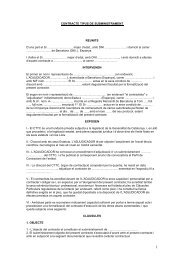innovating communications - CTTC
innovating communications - CTTC
innovating communications - CTTC
Create successful ePaper yourself
Turn your PDF publications into a flip-book with our unique Google optimized e-Paper software.
Vision and Mission_Statement of the Director_Organization and Management_Research and Demostration_Business Development_Intellectual Property Rights_<br />
Highlights 2007_Research Projects_Technology transfer_Training activities_Partnerships, Cooperation and Communication_Publications_Financial Report<br />
34<br />
FP6-IST-33533 COOPCOM<br />
Started: October 2006<br />
Duration: 36 Months<br />
Volume: 60 person-month<br />
Budget: 502,050 euros<br />
Funding: 51,64 % from IST<br />
Project manager: Athanasios Liavas (Tele<strong>communications</strong><br />
Systems Institute)<br />
Xavier Mestre, PhD_Senior Research Associate_Radio Communications<br />
David Gregoratti_PhD candidate_Radio Communications<br />
Mari Kobayashi, PhD_Post-Doc Research Associate_Radio Communications<br />
Cooperative and Opportunistic Communications in Wireless Networks<br />
Partners:<br />
Tele<strong>communications</strong> Systems Institute (TSI), Greece<br />
Research Academic Computer Technology Institute (RACTI), Greece<br />
Kungliga Tekniska Hogskolan (KTH), Sweden<br />
Ericsson AB, Sweden<br />
Institute EURECOM, France<br />
Universite Catholique de Louvain (UCL), Belgium<br />
Centre Tecnològic de Telecomunicacions de Catalunya (<strong>CTTC</strong>), Spain<br />
Cooperation and opportunism are two concepts that have recently revolutionized the design of wireless systems. Successful<br />
incorporation of these concepts in wireless system standards requires the solution of difficult theoretical and practical problems.<br />
The main objectives of the project are:<br />
- To explore performance limits of cooperative and opportunistic schemes (e.g. information theoretic analysis of combined<br />
cooperative-opportunistic schemes, large-system analysis for gain quantification of cooperative schemes) and multiuser<br />
diversity with limited feedback.<br />
- To develop efficient strategies and coding schemes for cooperative and opportunistic <strong>communications</strong>, maximizing diversity<br />
and coding gain under various operational scenarios (homogeneous versus inhomogeneous channel statistics, full versus<br />
partial channel knowledge, codes for a combined cooperative-opportunistic scenario).<br />
- To develop efficient resource allocation with limited feedback, including decentralized resource allocation, by targeting the<br />
optimal exploitation of various grades of channel information at the transmitters (full, partial, statistical).<br />
- To implement selected cooperative and opportunistic schemes on a testbed, in order to fully understand practical implementation<br />
constraints, assess the benefits of cooperation and opportunism in realistic environments, and support proof-of-concept.<br />
Web page: http://www.coopcom.eu.org/


